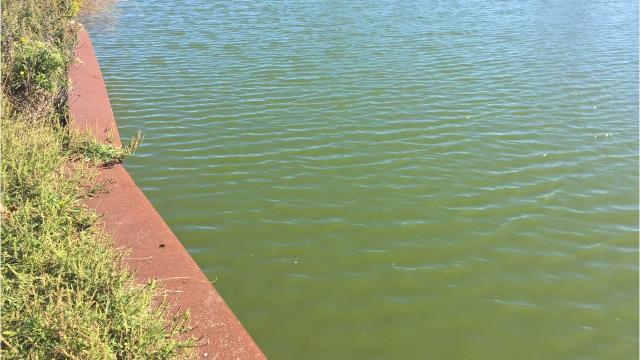Potential toxic water near Three Rivers could force residents to shut down their taps and stock up on bottled water.
Residents who rely on getting water directly from the Kaweah River are urged to use caution, county officials said. Potential toxic algae in the river has been found on more than one occasion this summer.
Tulare County Public Health officials recommend that community members not use tap water for drinking, cooking, showering, or brushing teeth until more information is available.
A timeline was unknown as of Monday.
Babies, young children at higher risk
Health officials are also asking residents to be extra cautious when bathing infants and young children due to the high risk of accidental ingestion. This also includes consuming water from appliances connected directly to water supply lines, such as refrigerators, ice dispensers and dishwashers.
The warning comes on the heels of last week’s reports that a potentially harmful algae bloom (HAB) was spotted across recreational sites along the Kaweah River by the Tulare County Public Health Environmental Health Services Division and the Central Valley Regional Water Quality Control Board.
Algae is a vital component of the aquatic ecosystem by being a food source to wildlife and oxygen producers, according to the California Water Quality Monitoring Council. However, due to rapid algae growth, blooms develop and produce harmful toxins and taste and odor compounds.
Harmful algae blooms: What to watch for
The California Water Resources Control Board says bodies of water affected by HAB contamination can often have a distinct green pigment or appear red. A unique odor often described as gasoline, septic, or fishy can accompany water discoloration.
People exposed to HABs can begin experiencing symptoms within 48 hours that include:
- sore throat or congestion;
- coughing, wheezing, or difficulty breathing;
- red, or itchy skin, or a rash;
- skin blisters or hives;
- earache or irritated eyes;
- diarrhea or vomiting;
- agitation;
- headache; and/or,
- abdominal pain.
Local and state water experts say there is no easy fix if your primary water source comes directly from the Kaweah River and that boiling or adding chemicals in the water does not eliminate the toxins.
This water warning has not impacted surrounding water companies, wrote Carrie Monteiro, Tulare County Health and Human Services Agency public information officer.
Water testing services explicitly relating to HABs for private domestic water wells are offered by the Tulare County Public Health and Self-Help Enterprises. Residents with questions can contact the Water Quality Program at 559 802-1285 or email them at [email protected].
If you are exposed to water that might be contaminated by a HAB, immediately wash with soap and water. Call Poison Control at 1-800-222-1222 for advice if you are having health problems you think are related to an HAB, and contact your medical provider.
[ad_2]
Originally Appeared Here


